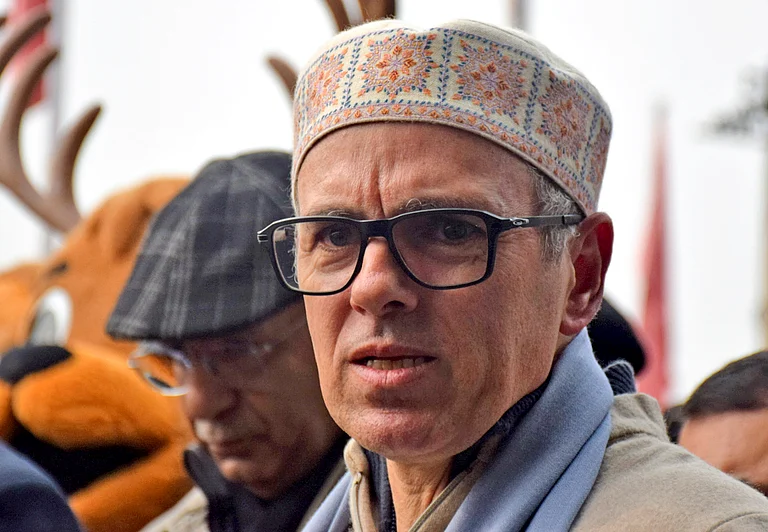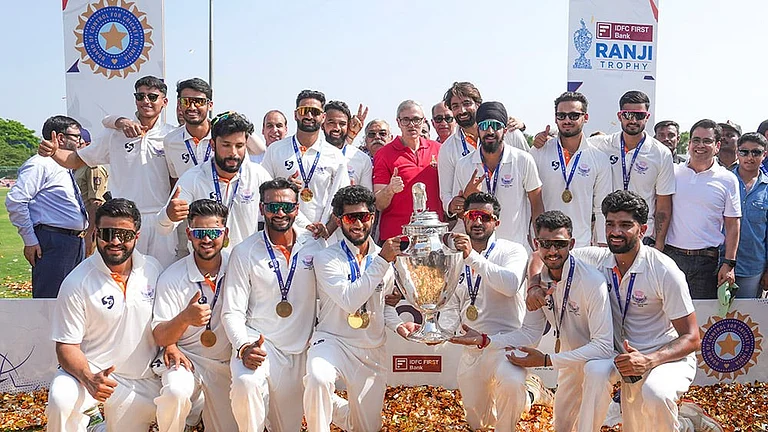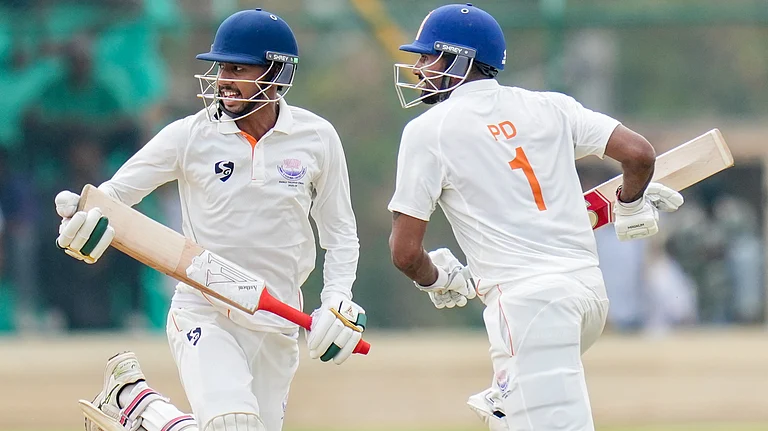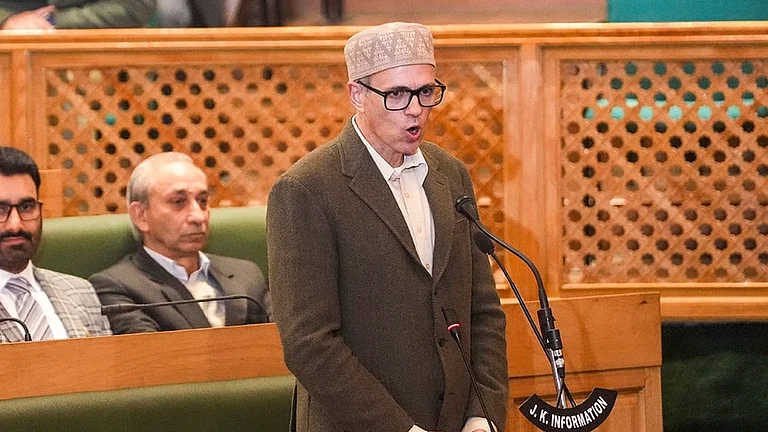He arrived on horseback, carrying the BJP flag in his hand and with the song "Azeem-o-shaan shahenshah" from the film Jodhaa Akbar playing in the background.
Azeem-o-shaan shahenshah
Azeem-o-shaan shahenshah
Furwa rawa hamesha hamesha salamat rahe
He was none other than J&K BJP president, Ravinder Raina. Dressed in pheran, a traditional Kashmiri garment, with a well-designed pashmina shawl on his shoulders. People in attendance were capturing the moment on their mobile phones. Later, when Raina visited Kulgam, he repeated the spectacle of arriving at the venue on horseback.
Of late horses have become popular in Kashmir.
Two years ago, a Kashmiri entrepreneur named Ali Abbas opened the Valley's first horse riding school in central Kashmir's Budgam district after he saw youths taking to horse riding. Abbas traced the origin of this frenzy to the Turkish television series "Ertugrul." The "Fazlullah Royal Stables and Riding School" was the first of its kind, aiming to train people interested in horse riding. Abbas, himself an experienced horse rider, at that time, told reporters that it was the impact of the "Ertugrul" series that prompted him to start the school.
Ertugrul is a Turkish television series that is set in the 13th century and is based on the life of Ertugrul, the father of Osman I, the founder of the Ottoman Empire.
The television series gained huge popularity in the Valley. One of my friends follows it on YouTube and watches it in a way as if is one of the characters. I worry that if he spots a horse in the vicinity, he might become so excited that he'll jump out of the car to ride the horse.
I don’t know what inspired Raina to take to the horse-riding campaigns. But it was amusing. During his address, Raina referenced a Hadith of the Prophet Muhammad (SAW). A hadith is an account of an activity or saying of the Prophet. Raina said that the Prophet had called for the universal sentiment of aiding those in need and helping the poor. He went on and started counting the schemes that the BJP has launched for the poor and described the BJP as the party of the poor. All this is happening in south Kashmir.
Away from South Kashmir, one of the most significant debates in Srinagar this season revolves around watermelons. The debate has its origin in a social media post of a doctor who claimed that watermelons being sold in the market were artificially ripened using chemicals. This claim created widespread concern among consumers, particularly because watermelons are a staple fruit during Ramadan, frequently enjoyed when breaking the fast.
A few days ago, the Food Safety Department of Kashmir intervened and rejected the claims of "premature ripening of watermelons using chemicals" as baseless. They said that rigorous surveillance and advanced analytical techniques were employed to ensure the safety of watermelons for consumption. However, there is no end to the debate.
Last year breaking all records in fruit sales during the month of Ramadan, Kashmir generated huge revenues from watermelon sales. The region consumed 100 trucks of watermelons every day, worth Rs 5 crore in value. However, this year, the social media discourse surrounding watermelon has impacted the sale. In the absence of widespread discussion over other issues, it is heartening to see the raging debate in Kashmir over watermelon. The government too has shown benevolence by tolerating such discourse so far.
At the same time, there hasn't been any political intervention regarding the watermelon issue, which too is a positive development. Regional political parties are preoccupied with their own goals which they score against each other. One day National Conference extends a warm welcome to leaders from the PDP on their entry into the NC, while the other day the PDP reciprocates by welcoming NC leaders into their fold. Similar activities are being observed across other parties. Peoples Conference also welcomes the joining of people in its party, Apni party also welcomes others joining it. Such joining of political leaders in each other parties has become a prominent political feature in J&K politics over the past five years and in the absence of Assembly elections, it has remained a major political activity in Kashmir after abrogation of Article 370.
However, only the Congress party is away from this activity. The Congress party welcomes its own workers joining the Congress as already over 60 per cent of Congress party in J&K has switched to Ghulam Nabi Azad when the latter established the Democratic Progressive Azad Party. The only party that is not doing this joining campaign is the CPI(M). The CPI(M) leader in Jammu and Kashmir M Y Tarigami is looking for Peoples Alliance for Gupakr Declaration (PAGD) as he is its convenor. He is asking the NC and PDP leaders whether they have found it anywhere. So far there is no trace of it. It has disappeared from the scene.
In all this, these days, it is somewhat amusing to observe Omar Abdullah's interactions with the press. When questioned about the timing of his candidate announcements, he retorted with "jab hamari marzi hogi" (when we decide), and when asked whether he is joining the Bharat Jodo Yatra, Omar didn’t even bother to acknowledge the existence of reporters and walked away, saying, "mein nahi jar aha hun" (I am not going). Interestingly, there was no horse in sight for him to ride away on.


























